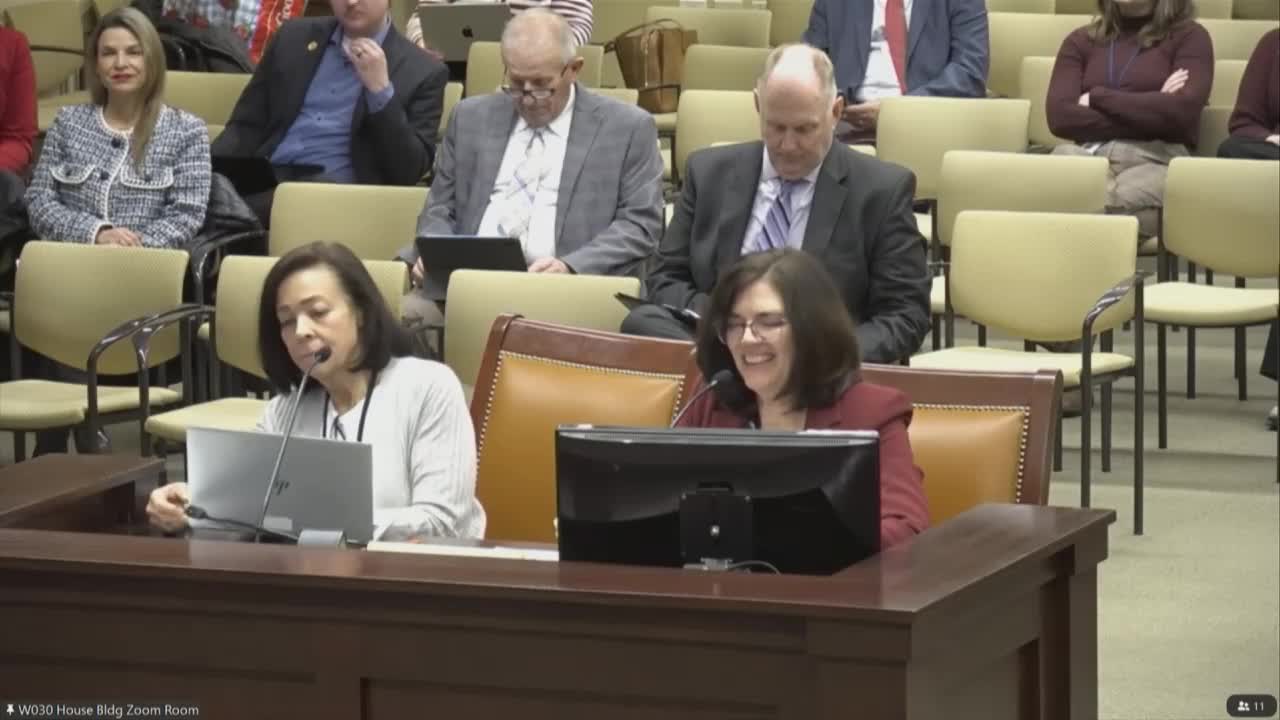Article not found
This article is no longer available. But don't worry—we've gathered other articles that discuss the same topic.
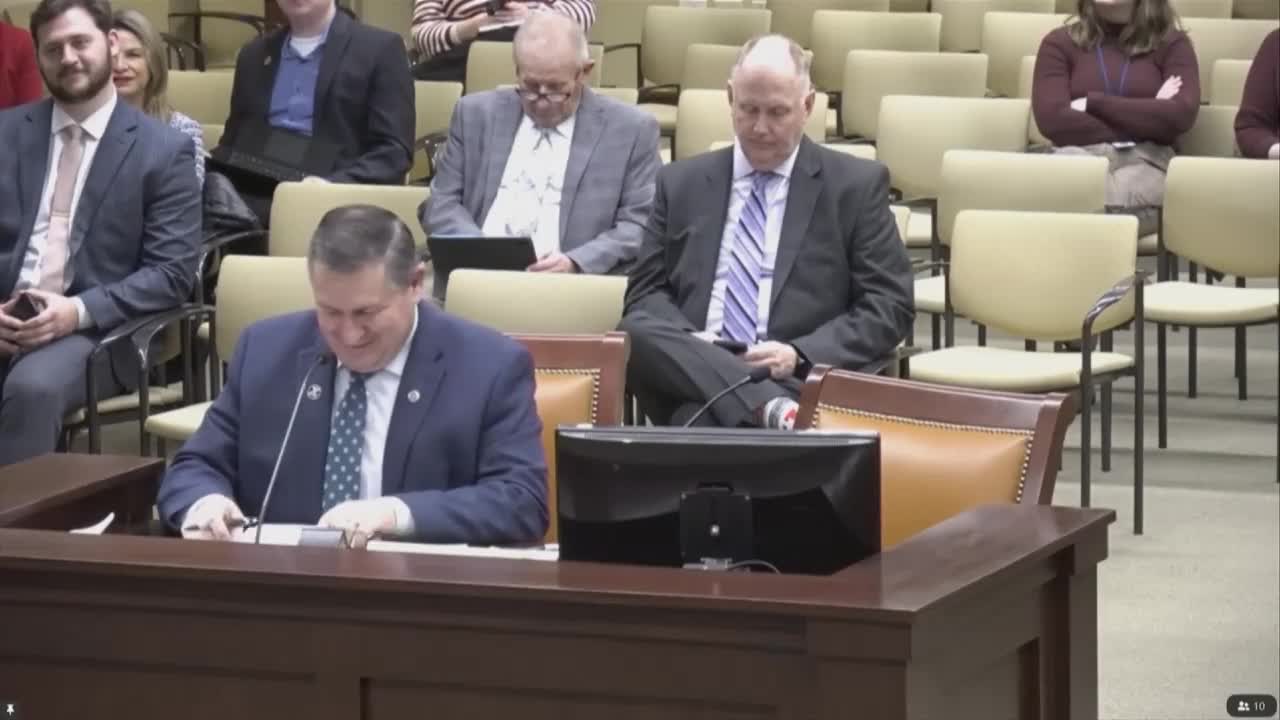
Committee advances corrections bill tightening records rules, expanding tablet use and execution options
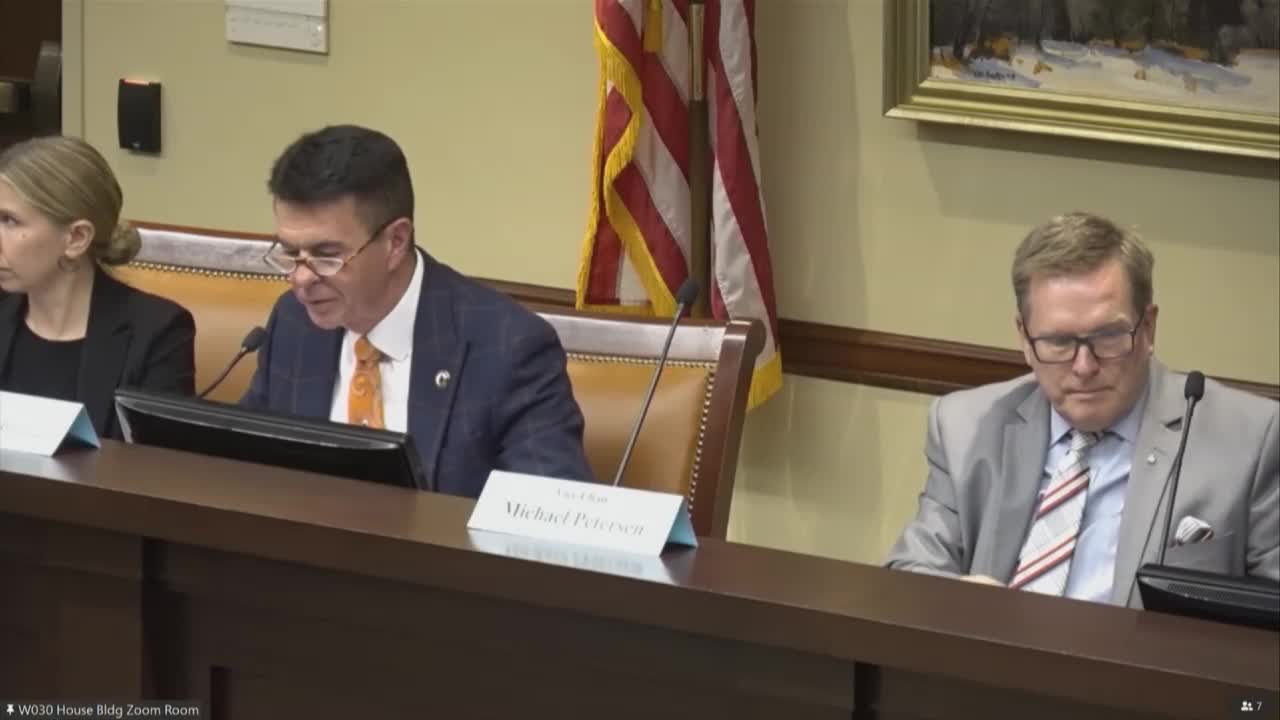
Committee clears National Guard bill clarifying adjutant general appointment, armory rules and student‑loan aid
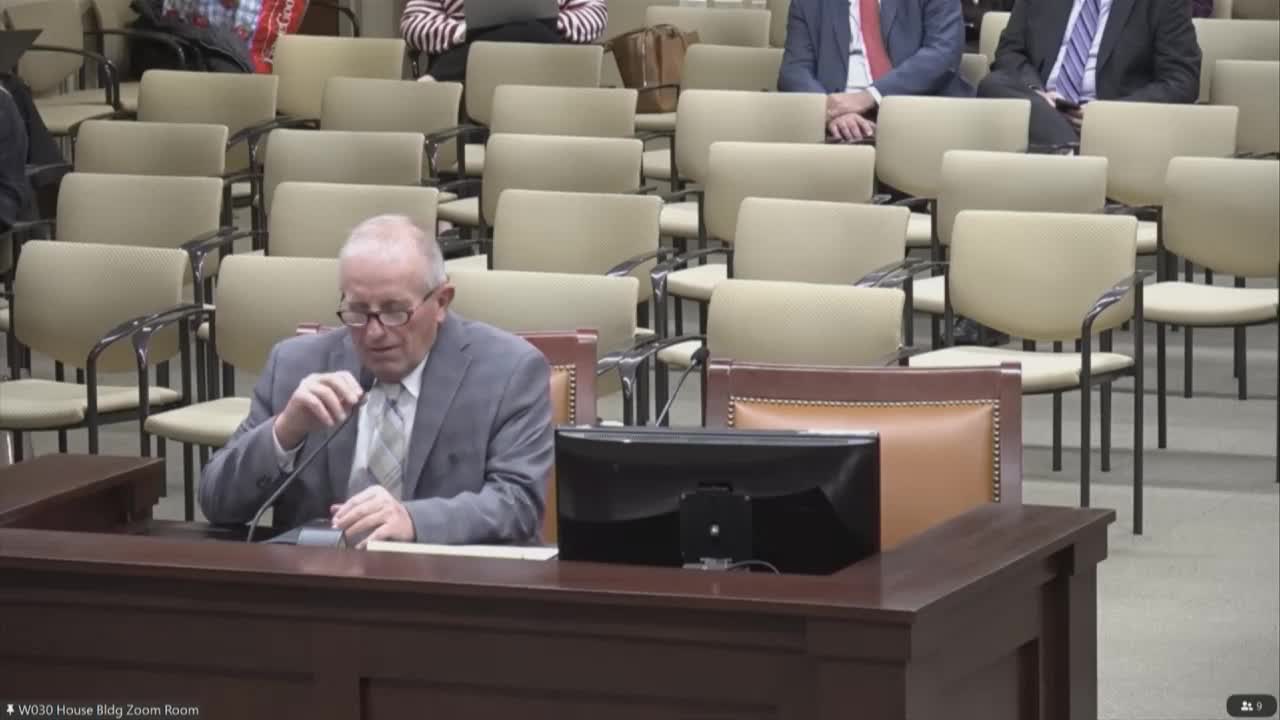
Committee approves publishing certified petition signers; strips voter‑ID numbers after clerk concerns
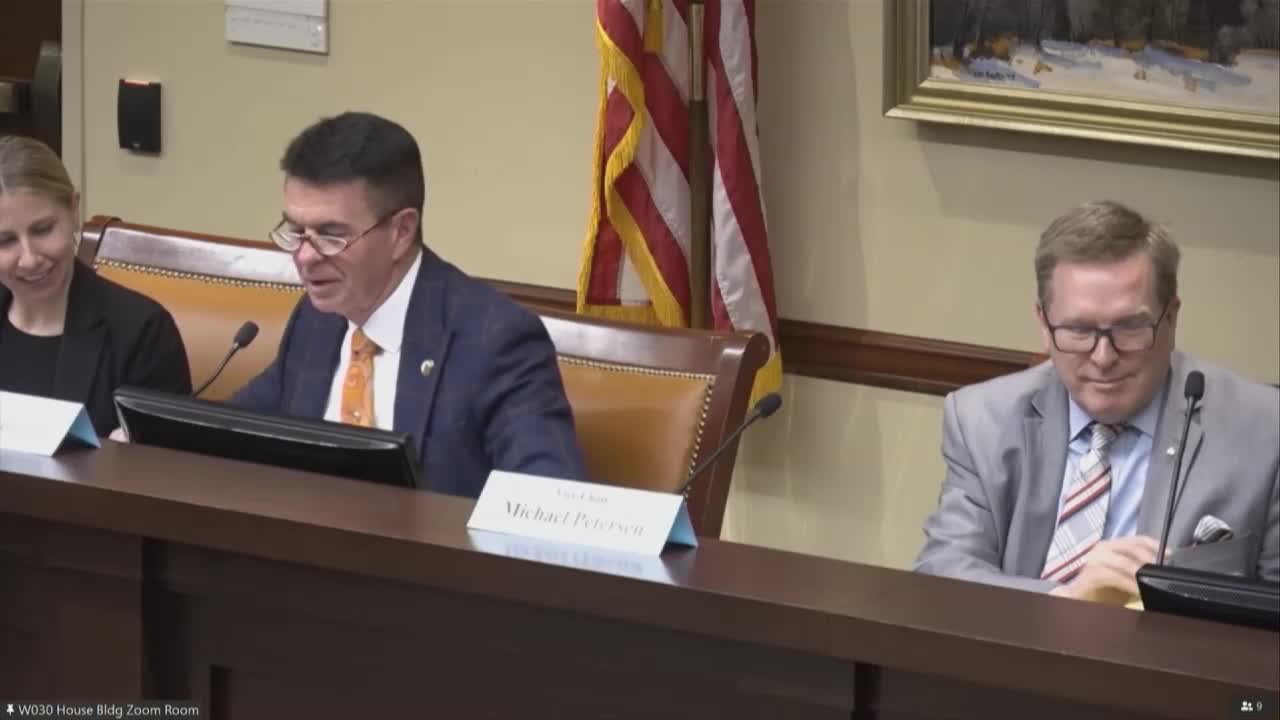
Panel backs bill letting wildlife offices hand out voter‑registration information at license sales
